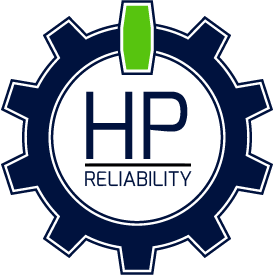Solve. Achieve. Sustain.
The Top 3 Analysis Techniques To Use When Performing a PM Optimization
 Performing a PM Optimization is not always as simple as it sounds. Often a Maintenance Planner will assemble a team of technicians to ask what is value-added and what is missing from a PM Routine. While these may be good questions to ask before diving into an analysis, or after an analysis, it does not base the answers on data. Basing the PM Routine on data, not intuition is critical to the long-term success of any organization.
Performing a PM Optimization is not always as simple as it sounds. Often a Maintenance Planner will assemble a team of technicians to ask what is value-added and what is missing from a PM Routine. While these may be good questions to ask before diving into an analysis, or after an analysis, it does not base the answers on data. Basing the PM Routine on data, not intuition is critical to the long-term success of any organization.
To perform a PM Optimization, there are three main types of analysis to focus on the […]
Linking Failure Codes To A Proactive Maintenance Strategy
Using Failure Data to Drive Sustainable Improvements
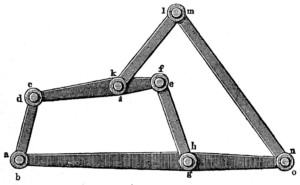 If you are lucky enough to have good failure data history in your CMMS, you are one of the few. But even if you have the data, can you use it to make a difference to your organization? Obviously, the data can be used to perform certain reliability engineering analyses, but what can those without reliability engineering experience do with the data?
If you are lucky enough to have good failure data history in your CMMS, you are one of the few. But even if you have the data, can you use it to make a difference to your organization? Obviously, the data can be used to perform certain reliability engineering analyses, but what can those without reliability engineering experience do with the data?
Bad Actor / Pareto Analysis
Two simple analysis that anyone can use with their failure history are;
- A Bad Actor analysis is identifying equipment that is […]
Collecting Failure Data: A Practical Approach
How to collect the failure data needed to drive improved plant performance.
 The first step to any reliability improvement program is to define what data or information will be required to drive defect elimination. In the previous posts, the following topics were discussed;
The first step to any reliability improvement program is to define what data or information will be required to drive defect elimination. In the previous posts, the following topics were discussed;
All of the topics discussed what data is required and how to structure the data to implement a reliability engineering program or defect elimination process. Understanding the what, when and why set up and is required to setup a reliability engineering […]
Understanding ISO 14224: You Guide to Sustainable Defect Elimination
Capture The Right Failure Data to Power Your Defect Elimination Activities
 In the petroleum, natural gas and petrochemical industries, great attention is being paid to safety, reliability, and maintainability of equipment. This is true in any industry and as such the learnings and information found within ISO 14224 can be applied to any industry.
In the petroleum, natural gas and petrochemical industries, great attention is being paid to safety, reliability, and maintainability of equipment. This is true in any industry and as such the learnings and information found within ISO 14224 can be applied to any industry.
While ISO 14224 was developed for the Petroleum, Natural Gas and Petrochemical industries, the same process can and should be applied in any organization. When implemented, the right data can be gathered to not only eliminate defects from […]
How to Setup An Asset Hierarchy
Ensuring the Failure Data Collected Can Be Used To Drive Improvements In Any Organization
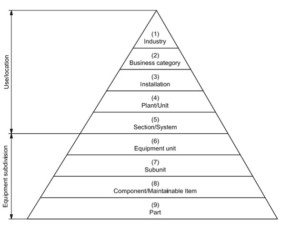 ISO 14224 – Equipment Taxonomy
ISO 14224 – Equipment Taxonomy
If you were to go into your CMMS and look at the hierarchy and equipment, would it be well laid out and organized? Would you be able to drill down the to the lowest level of components to know what failures have occurred? Can you see how pumps are performing across a specific area or the entire plant? The chances are that for many organizations, this is not possible. Why is that? The asset […]
Failure Reporting And Corrective Action System (FRACAS)
Using a System to Record, Report And Eliminate Defects
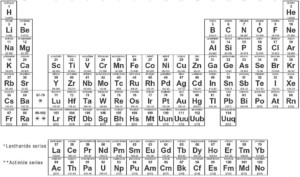 Why is that some organization seem to break the reactive cycle and others don’t? After all most organizations have a PM program and some form of a planning and scheduling program right? The key difference between those that do is their ability to use their failure data and systematically eliminate defects and issues from the processes and equipment. This doesn’t mean adding a new PM everytime some fails, which just won’t work.
Why is that some organization seem to break the reactive cycle and others don’t? After all most organizations have a PM program and some form of a planning and scheduling program right? The key difference between those that do is their ability to use their failure data and systematically eliminate defects and issues from the processes and equipment. This doesn’t mean adding a new PM everytime some fails, which just won’t work.
To eliminate the defects and issues, the organization needs to collect meaningful data to […]
Using Simplified Technical English to Write Effective Maintenance Procedures
Reduce the Variability in Your Work Routines and Procedures
 Based on our understanding of the six failure patterns, we can see that there is a large probability of failure when the equipment is first installed and started up. One of the Englisch causes of this increase in probability is the fact that the equipment was not installed or maintained correctly. This may be due to the installer or maintainer not using or following procedures. Having procedures is the first step to reducing these failures, but the procedures must be written in a clear, […]
Based on our understanding of the six failure patterns, we can see that there is a large probability of failure when the equipment is first installed and started up. One of the Englisch causes of this increase in probability is the fact that the equipment was not installed or maintained correctly. This may be due to the installer or maintainer not using or following procedures. Having procedures is the first step to reducing these failures, but the procedures must be written in a clear, […]
Establishing the Frequency of Failure Finding Maintenance Inspections
Preventing The Consequences Of A Hidden Failure From Devastating Your Organization.
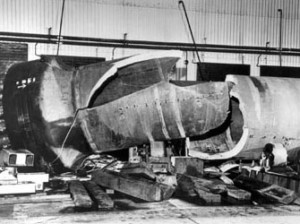 Ever wonder how some of the worst industrial disasters occur? It is usually the result of multiple failures. Failure of the primary system and failure of the protective systems. Ensuring the protective system(s) are not in a failed state should be of utmost importance to any organization. But how often should we test the protective systems to ensure the required availability?
Ever wonder how some of the worst industrial disasters occur? It is usually the result of multiple failures. Failure of the primary system and failure of the protective systems. Ensuring the protective system(s) are not in a failed state should be of utmost importance to any organization. But how often should we test the protective systems to ensure the required availability?
Establishing the correct frequencies of the inspection/ testing activities of these protective system(s) is critical to not only the success but safety […]
Establishing the Frequency of On-Condition Maintenance Inspections
Ensuring The Inspections Will Catch the Defect Before A Functional Failure Occurs
 Ever wonder how some organizations make their vibration or thermographic program work, and not only work but deliver huge results to their organization? They use a systematic approach to establishing the correct frequencies of inspection. Establishing the correct frequencies of maintenance activities is critical to the success of any maintenance program. Too infrequently and the organization is subjected to failures, resulting in poor operational performance. Too frequently, and the organization is subjected to excess planned downtime and an increased probability of […]
Ever wonder how some organizations make their vibration or thermographic program work, and not only work but deliver huge results to their organization? They use a systematic approach to establishing the correct frequencies of inspection. Establishing the correct frequencies of maintenance activities is critical to the success of any maintenance program. Too infrequently and the organization is subjected to failures, resulting in poor operational performance. Too frequently, and the organization is subjected to excess planned downtime and an increased probability of […]
Establishing Fixed Time Maintenance Intervals
How to Select The Optimum Fixed Time Maintenance Intervals
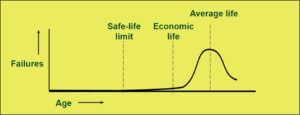 Think about your maintenance program. How often are your PMs scheduled? How were those frequencies established? If you are in the majority, the chances are that the frequencies were either established from the OEM manual, or by someone in the department without data.
Think about your maintenance program. How often are your PMs scheduled? How were those frequencies established? If you are in the majority, the chances are that the frequencies were either established from the OEM manual, or by someone in the department without data.
Establishing the correct frequency of maintenance activities is critical to the success of any maintenance program. Too infrequently and the organization is subjected to failures, resulting in poor operational performance. Too frequently, and the organization is subjected to excess planned downtime and […]
